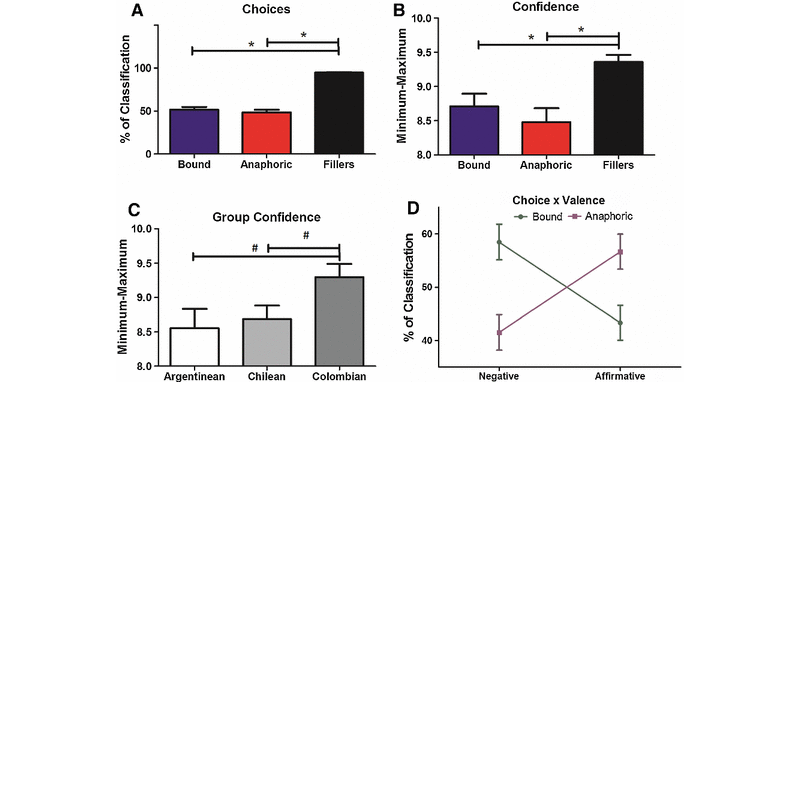Abstract: The overt pronoun constraint (OPC) states that, in null subject languages, overt pronoun subjects of embedded clauses cannot be bound by wh- or quantifier antecedents. Through the administration of two written questionnaires, we examined the OPC in 246 monolingual native speakers of three dialects of Spanish, spoken in Barranquilla (Colombia), Santiago (Chile), and Buenos Aires (Argentina). We tested separately the predictions that overt pronouns cannot be bound by wh- antecedents (Experiment 1) and that they cannot be bound by quantifier antecedents (Experiment 2). We found that the OPC was not operative in any of these dialects. In Experiment 1, the percentage of bound answers was approximately the same as the percentage of anaphoric answers. In Experiment 2, the percentage of bound answers was significantly higher than the percentage of anaphoric answers. Implications both for theories of pronoun resolution in null subject languages and for theories of first and second language acquisition are discussed.
Keywords: Null subject languages; Overt pronoun constraint; Pronoun resolution; Spanish


